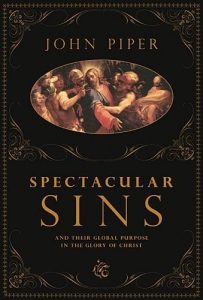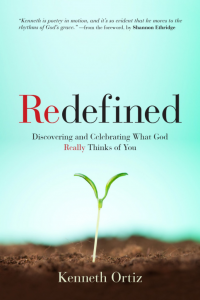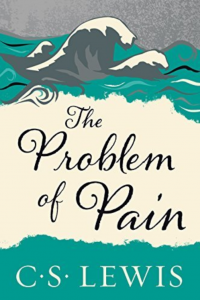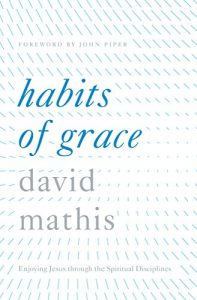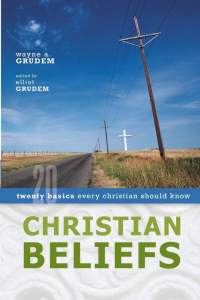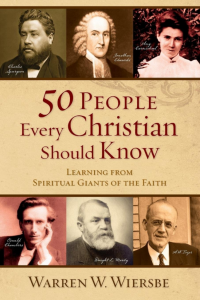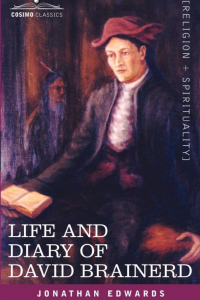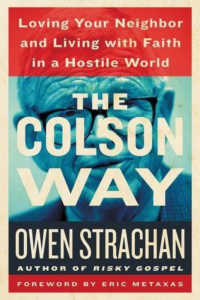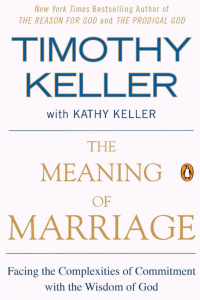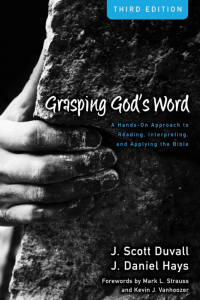
13 Books to Read to Grow in My Faith and as a Disciple of Christ
If you are going to grow in your Christian faith and develop as a disciple of Christ, you’ll want to obtain wisdom. One of the best ways to pursue wisdom is by reading great books.
There are many books you can read to learn how to develop your faith. Here are the top thirteen books that I recommend for you as you pursue wisdom and seek to better understand the Bible. In doing so, you will strengthen your faith and grow into being a mature disciple of Christ.
- Spectacular Sins
- Dangerous Duty of Delight
- Redefined
- The Problem of Pain
- Habits of Grace
- What’s So Amazing About Grace
- Christian Beliefs
- 50 People Every Christian Should Know
- The Life and Diary of David Brainerd
- The Colson Way
- The Meaning of Marriage
- The Pursuit of God
- Grasping God’s Word
I specifically crafted this list of thirteen books with younger Christians in mind, specifically those newer to the Christian faith. However, I’m confident these books will benefit you regardless of your age, background, or spiritual maturity.
1. Spectacular Sins (by John Piper)
John Piper is a well-known pastor and writer. Very few pastors have impacted me more than Piper. I love his preaching, theology, and ideology. I’ve listened to hundreds of Piper’s sermons and podcasts. But, to be honest, I’ve only actually read a handful of Piper’s books. The best of them, by far, was Spectacular Sins.
This book is absolutely fantastic. Piper gives us a rich and beautiful and glorious understanding of how God’s sovereignty plays out amid and through the sins of other humans.
The Apostle Paul tells us that God works all things together (Rom. 8:28). But sometimes it’s hard to trust that. Spectacular Sins explores the moments in Scripture where God uses human sinful choices to accomplish his plans, corroborating the Apostle Paul’s assertion that God works together all things—even the sins committed against us.
We know that it’s impossible to go through this life without someone wronging us or hurting us, and frequently the hurt and wrong-doing often comes from the people we love most.
In this book, Piper gives us great insights into how we should think about the sins people commit against us and trust that God will ultimately use those sins to accomplish his good plans. The book highlights various sinful choices described in Scripture, demonstrating how God always uses those sins in a spectacular way.
2. Dangerous Duty of Delight (by John Piper)
Another good Piper book. Herein Piper explains, from the Bible, that God cares about our happiness and satisfaction. In fact, every person is divinely hardwired to pursue happiness and satisfaction. All of us long for significance and profound joy because that’s how God made us. St. Augustine (354-430) famously said, “Our hearts are restless until they find their rest in you.”
The problem is that many people seek happiness in the wrong things or the wrong ways. Some people try to seek satisfaction in exotic vacations or high-tech gadgets or career success or sports or academics or drugs or sexual exploits. Yet the longing remains. Why? Because we can only be truly happy and satisfied, ultimately, in Christ.
Piper is famous for explaining how we seek and find true happiness in God. He has famously said, “God is most glorified in us when we are most satisfied in him.” And, more importantly, Piper helps us understand that God is actually commanding us to be happy. More than 225 times the Bible tells us to be glad and rejoice. Dangerous Duty of Delight helps us understand this.
This book is mostly simple and clear, giving you straight-forward Biblical teaching. This book will greatly challenge you and encourage you.
Piper originally explained these concepts of joy and happiness in his most famous book, Desiring God (originally written in the 1980s). But Dangerous Duty of Delight is, in essence, the shorter version of Desiring God.
Desiring God is more than 210,000 words. But Dangerous Duty of Delight is only 17,000 words. Much easier to get through. So, I typically recommend that people start with Dangerous Duty of Delight and then, if you want to go further and deeper, read Desiring God.
3. Redefined (by Kenneth Ortiz)
Recommending your own books always feels a little odd, but I truly believe this book will be extremely helpful to anyone wanting to grow and mature in their faith. There are several key spiritual things that take place in the soul, heart, and life of the person who has come to faith in Christ. The Bible refers to Christians as “new creation.” But what does this mean?
There are many other books that seek to answer that question and cover these key doctrines, however, to be frank, many of them are overly academic or written for the seminarian-type, so they’re not very accessible.
I specifically wrote Redefined to explain these deep and complex theological truths in a way that is easy to understand. Redefined explains key Christian doctrines such as Justification, Adoption, Sanctification, and the Imputation of Christ’s Righteousness. These doctrines have been at the core of the Christian faith and understanding them will transform your life.
4. The Problem of Pain (by C.S. Lewis)
It’s impossible to compile any list of good Christian books without including at least one C.S. Lewis book. In fact, this whole list could be compiled of C.S. Lewis books and be worthwhile, but we’ll limit it to just one Lewis book. The one Lewis book that makes this list is The Problem of Pain.
Lewis is very effective in his effort to tackle the problem of pain and tragedy. He does a wonderful job of helping people wrestle through the purpose of pain in our lives. As well as the theological questions we frequently ask.
We will all face pain in this life. That’s a given. How we handle that pain, and how we respond to painful situations, will dramatically impact the trajectory of our lives, our emotional health, and our spiritual development. Learning to trust God while experiencing pain is an essential element of the Christian life.
Lewis’ words are absolutely masterful and he’ll point you toward glorying God, despite any pain you face. When you read this book, you won’t necessarily get all of the answers to your questions, but Lewis will help you navigate painful situations in a God-glorifying manner.
5. Habits of Grace (by David Mathis)
Many contemporary pastors often talk about spiritual disciplines as being the means of spiritual growth and discipleship.
Spiritual disciplines are activities we engage with on a regular basis that help us cultivate intimacy with God in hopes of strengthening our faith and further developing our Christian maturity. In other words, spiritual disciples are the things we do to grow spiritually and emotionally.
Throughout the twentieth century there were several influential books written on the topic of spiritual disciplines. Some of them were very good, however, some made readers feel like the key to spiritual growth was perfect obedience to a list of spiritual habits. I believe our approach to spiritual disciplines ought to be much more grace-focused, and that’s what makes Habits of Grace different.
In this book, Mathis explains that we can implement habits into our lives that help to cultivate intimacy with God and with God’s people (the church).
Habits of Grace avoids placing the focus or emphasis on human efforts or human obedience and instead focuses on the grace that God bestows to us, which is a much more joy-filled approach to spiritual disciplines.
This book also emphasizes the corporate nature of spiritual disciplines (most other books on this topic tend to be much more individualistic).
Mathis helps us see that, through seemingly normal and routine habits, the Holy Spirit helps us to enjoy Jesus more, and it is through enjoying Jesus that the Holy Spirit shapes us and molds us to be more like Jesus.
Interested in hearing from David Mathis? Check out my interview with him about the three essentials to “Enjoying Jesus”.
6. What’s So Amazing About Grace (by Philip Yancey)
If you were going to only read one book on this list, What’s So Amazing About Grace would probably be the one I’d recommend.
Phillip Yancey is one of the best Christian authors of the last hundred years and has a fantastic way with words. He’s written several best-selling books that are worth checking out, but this one stands out to me because of the transformative nature of its main point: the amazing grace of God!
In this book Yancey beautifully paints the picture of what Biblical grace actually is. He uses fun stories, metaphors, testimonies, and illustrations, to explain how grace plays out in our daily lives, in our churches, our families, and in our prayers.
He does a phenomenal job of explaining deep, profound, and complex theological concepts in a way that is easy to understand, comforting, and heartwarming. This book brought me to tears (literally) multiple times.
When you truly begin to understand the depth and power of God’s grace, it will transform everything you do and every interaction you have with other people.
7. Christian Beliefs (by Wayne Grudem)
There are a bunch of theology books on the market that are written at high academic levels, giving great insights, and covering complex truths. However, many of them are not easy to follow or understand.
Wayne Grudem has written several volumes on theology. The aim of Christian Beliefs is to be an entry-level or introductory theology book. This book is a great place to start when first studying theology and doctrine.
In this book, he covers the twenty basic Christian doctrines that every Christian should understand. He explains each of the doctrines in a manner that is both simple and clear while still being thorough.
He also explains where some Christians might disagree on some elements of these doctrines, and explains those disagreements in a way that makes sense and avoids divisive language (I’d like to be able to tell you that all theology textbooks avoid divisive language, but unfortunately that’s not the case). By the time you’re done reading this book, you’ll understand the core elements of Christian theology.
If you’re looking for a theology book that’s something more than entry-level, then check out Bible Doctrine (also by Grudem) or Christian Theology (by Millard J. Erickson).
8. 50 People Every Christian Should Know (by Warren Wiersbe)
I’m a huge church history nerd. I recognize most people aren’t like me in that way, and that’s totally fine, but there is so much to learn from the Christians that have gone before us. One of the greatest ways to build and strengthen your faith is to see how God has been faithful to Christians throughout the centuries.
There are many great biographies out there to read but I think it’s ideal to start with a book that gives an overview of many believers. The one I’d recommend is 50 People Every Christian Should Know, written by Warren Wiersbe, one of the most influential Christian writers of the last hundred years.
In this book, Warren Wiersbe gives a brief biography of fifty different people throughout church history, beginning in the early church and going up to modern-day. He covers what they believed, why they believed it, and how they made an impact in the world. This book is an easy read and it’ll inspire you to live a faith-filled life.
9. The Life and Diary of David Brainerd (by Jonathan Edwards)
Learning about inspirational people from church history by reading about them in contemporary books is valuable, but learning about those people by reading what was written about them during their own lifetime can often be even better. This is certainly the case with David Brainerd and with this book.
Brainerd was a missionary to the Native Americans in the Western frontier during the 1700s, and in his 20s he became very ill, so he moved back to Massachusetts and lived with the famous pastor-theologian Jonathan Edwards (Edwards is largely considered one of the most brilliant minds in American history). The Edwards family took care of Brainerd until his death.
In this book Edwards masterfully details the life and ministry of Brainerd in a manner that will inspire you to want to love and serve God in the same way that Brainerd loved and served God.
At its publication, The Life and Diary of David Brainerd became a bestseller and inspired thousands of Christians to get involved in missionary work. Through the life of Brainerd we learn how our lives can be shaped by great theology, and then we also see that a life informed by great theology always leads to a life seriously committed to God’s mission.
It is also to be noted that Brainerd died at the young age of only 28, which shows that young people can make a tremendous impact in the world if they are committed to Christ.
10. The Colson Way (by Owen Strachan)
The Colson Way is a short biography of Chuck Colson. Colson was a political operative working for President Nixon in the 1970s and Colson was one of the men that went to prison as a part of the Watergate scandal. Colson came to faith in Christ while in prison.
After being released, Colson launched Prison Fellowship, a ministry to prison inmates that would become a global enterprise.
Colson was involved in various ministries, wrote several books, many articles, traveled extensively speaking, and became an influential evangelical leader in the 20th century.
Colson’s writings and lectures have shaped the way millions of evangelicals think about cultural engagement, ethics, politics, and evangelism. Strachan highlights various lessons we can learn from Colson’s life and ministry.
Strachan effectively exposes the worldview inconsistencies that plague many modern Americans—even many professing Christians—and Strachan uses wisdom from Colson’s life to instruct us on how we can develop a true Christian worldview that can stand up against all other worldviews. This book is relatively short and easy to read, yet jammed-packed with incredible insights.
11.The Meaning of Marriage (by Tim & Kathy Keller)
You might ask, “Why is a marriage book on this list?” Good question. Well, because the majority of people will be married, and there is nothing else in your life that will impact the trajectory of your life more than your marriage.
But even if you are not married, this book is still worth reading because it teaches us a lot about human nature and the ways in which we mature, which can be helpful in all of our relationships, not just with a spouse.
This book contrasts how the bible defines marriage versus how our modern culture seems to define marriage. Many people in our culture make assumptions about marriage that lead to unrealistic expectations and eventual disappointment. This book offers instruction on how to have a successful marriage that pushes both husband and wife toward greater sanctification.
Keller’s main point in The Meaning of Marriage is that marriage was instituted not for happiness, but for holiness.
God established the institution of marriage as the primary instrument for people to be shaped and molded into the image of Christ. and your greatest accountability, partner and more importantly, your spouse will be your mirror to see how sinful you really are in order that you can grow.
12. The Pursuit of God (by A.W. Tozer)
Earlier in this article I said that if you were going to only read one book from this list then it ought to be What’s So Amazing About Grace by Yancey. However, there are a lot of Christian leaders that would actually say the same thing about The Pursuit of God by AW Tozer. That’s because Tozer’s insights are phenomenal.
I read The Pursuit of God when I was 16 and it rocked my world.
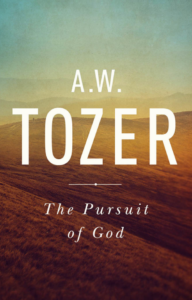
This book is considered a classic, and for good reason. Tozer presents a vision of God that is so grand and glorious, you’re compelled to want to pursue God. Tozer also explains how God’s pursuit of man is the foundation of our pursuit of God.
Tozer reminds us that God pursues us and offers us his joyous rest. Tozer says, “Jesus calls us to his rest, and meekness is His method.” Tozer explains that if we embrace the meekness of Jesus we are freed from the need to impress others because “the meek man has long ago decided that the esteem of the world is not worth the effort.”
Later in the book Tozer talks more practically about what it looks like to allow our pursue of God to play-out in both our inner thoughts and outward behavior. He helps us see the detriment caused by our modern hustle and bustle, and calls us to steadily gaze upon God in all we do, and to intentionally replace low thoughts of God with lofty ones. The Pursuit of God is a must-read book.
13. Grasping God’s Word (by J. Scott Duvall & J. Daniels Hays)
This will seem like an odd way to end this list. Grasping God’s Word is a textbook, so it may not seem fun to read. But it’s so well written and so well organized that it’s probably the most enjoyable textbook I’ve ever read.
Grasping God’s Word is a hermeneutics textbook. Hermeneutics is the process of critically studying and interpreting words and texts. Hermeneutics is used in various academic disciplines but most often discussed within the realms of biblical studies, theology, and philosophy. In biblical studies hermeneutics is often defined as the science of studying, understanding, and applying the Bible.
This book gives tremendous wisdom, practical techniques, and hands-on exercises that will help you to do hermeneutics right.
Duvall and Hays teach us the right questions to ask when studying the Bible and they demonstrate the appropriate journey we must go on in order to rightly understand the Bible (they call this the “interpretative journey”). They also emphasize the Bible’s overall redemptive arc and the continuity between the Old and New Testaments.
If you are wanting to know how to study the Bible and apply it to your life, then Grasping God’s Word is a great book that will be very helpful to you.
Conclusion
So, that’s it. That’s my top 13 books you ought to read to grow and strengthen in your spiritual journey, especially if you are a newer or younger believer. This list certainly isn’t exhaustive, there’s plenty of other great books out there, but this list is a great start.
If you are going to grow as a disciple of Christ, one of the best ways to do that is to pursue wisdom through reading great books. Doing so will certainly help you as you seek to mature and strengthen their faith.
Kenneth E. Ortiz (Th.M.) is Lead Pastor of Horizon City Church and Ph.D. Candidate at Midwestern Seminary. He has 15+ years of vocational ministry experience. Kenneth previously served as a professor at Bethlehem College and adjunct faculty at Spurgeon College. Kenneth lives in Minneola, FL with his wife Malaina, they have three kids.

